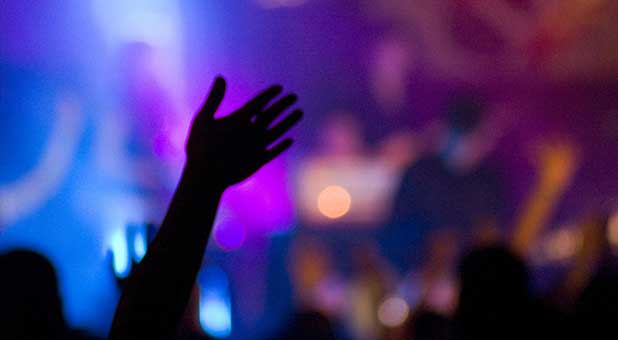4) The idol of objectifying God: Although this point is similar to the previous point, I felt there was enough of a distinction to separate them. Through the years I have seen many in the church preach and promote an “I,” “me” and “my” culture. That is to say, much of the preaching deals with self-actualization, fulfillment and therapy rather than sound, biblical theology calling believers to live a life of service.
Pastors have often fed into the cultural idolatry of the people in order to attract people into the church—something that displeases God (see Ezek. 44:10, 12). I have observed that there are too few “cross-carrying” disciples attending churches—but many use God when they need Him. Many come to church to “feel” the presence of God but are not committed to knowing and loving the “person” of God.
Many come to church merely to feel good instead of being equipped to do good works (Eph. 2:10). Many come to “get a word” instead of coming to “give a word” of edification to somebody (Is. 50:4; Eph. 4:29). Many come to listen to rhetorical messages that excite the emotions with no intention of walking out the word.
Many come to shout amen, being deceived into believing that because they shouted, they have already obeyed. Consequently, there are many believers who live no differently than their unbelieving neighbors, which is why megachurches do not always result in “megacultural” influence, and why church growth doesn’t always result in personal and societal transformation. Although many have attended church for decades, they have never matured and are still drinking pabulum, never having digested the meat of the Word (1 Cor. 3:1-3).
5) The idol of ethnicity: There are many believers who have allowed their ethnicity and culture to trump the Word of God. Jesus said culture is even stronger than the Word of God in some people’s lives (Mark 7:7-8). Consequently, people read the Scriptures through their Caucasian/Western, Afro-centric, Hispanic or Asian lenses.
One of the most important things to do in regards to receiving the Word of God for personal transformation is to attempt to take ourselves out of our own skin and read the Bible through the eyes of the authors original intent—something only the Holy Spirit can accomplish. There is no such thing as a Western European Caucasian Bible or an Afro-centric Bible. We need to stop reading the Scriptures merely through our ethnic lens because the truth is that the Bible was written with a Hebraic mindset and it is foolish to think we can fully understand it with our contemporary ethnic mindset.
Consequently, believers often act and react no different from non-believers in regards to things that happen in contemporary society. White, black and brown believers have generally reacted far different from one another when it comes to interpreting immigration reform and the tragedies of the Ferguson shooting and Eric Garner death. Truly, I believe that the gospel is so powerful that it is possible for diverse Christians to come together with one voice and prophetically interpret, speak into and bring solutions to these painful and controversial issues!
God is not color blind, since He made humans black, brown, yellow, red and white in His own image. Hence, He designed us to have distinctions in culture regarding food, dress, language and other things based upon ethnic nuances. However, these distinctions are not where believers should derive their primary identity or anchor their biblical ethics, for in Christ there is neither male nor female, black, white or brown, for we are all one in Christ (Gal. 3:28).
When our ethnic thinking trumps our biblical thinking, we are guilty either of ignorance or ethnic idolatry. Unless or until the body of Christ gets over its idolatry according to ethnicity, we will never become the generation that can disciple the nations (or in other words, ethnic people groups as shown in Matthew 28:19). Since there is no neutrality, either the church will disciple the nations or the nations will disciple the church!
Joseph Mattera is overseeing bishop of Resurrection Church and Christ Covenant Coalition, in Brooklyn, New York.
























